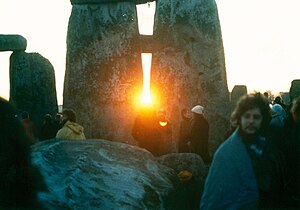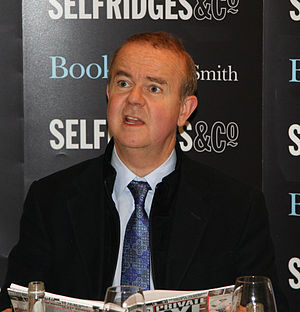With the World's financiers heaping misery on the majority of the planet's population, causing fiscal hardship through their mismanaged schemes,
Au
sterity, a term usually associated with the effects of the
Second World War on the spending power of Britain in the 1950's, is the watchword of the politicians who kowtow to the businessmen who really wield the power in the 21st century. It's not difficult to witness that the poorer sections of society are once more bearing the more disproportionate brunt of the economic asperity. An 8% rise in utility bills means that, relatively, a greater portion of the family budget is taken by the "Fat Cats" from those on the breadline compared to that of the higher earners in society. Disposable income is squeezed and the pennies do not stretch as far as they did a year ago meaning fiscal choices in households up and down the country become more clear cut as the ability to pay for school trips, children's new shoes and nights out is taken away. It seems that the definition of
Austerity means that the Private Sector can do as it pleases, increasing prices to boost profits, whilst Public Sector spending is cut ensuring welfare budgets, the safety net put in place to alleviate pecuniary suffering at the lower levels of society, shrink to the point whereby families in the
UK are forced to resort to charitable donations from food banks in order to put basic meals on the table.
 |
| Missing Fans!? |
With the shrinking of earnings in real terms, the ability to pursue interests outside of the family home becomes difficult, especially as the price of tickets for social events increases whilst wages fail to keep pace with the greater expense of the wider economy. Many people look forwards to their social life outside of work, spending time with family and friends, but this precious time can lose its sheen for some people if they are unable to fund time out for leisure activities. Attending sporting events on a weekend is one of those activities. Yet, watching some of the recent football and rugby matches on television, it is clear to see that, where a few years ago, the games at Wembley and the Millenium stadia would have been sell outs, something in today's society stopped them from being so. I understand the pull of watching the match from the comfort of one's armchair, but nothing beats actually being at the game and the chance to watch your national team compete, even in a so-called "friendly" match. I'm sure that there are more than enough fans willing to fill the stadia ten times over, therefore, other matters other than the desire to watch the games from the living room must be persuading fans to stay away.
 |
| Wembley Stadium |
Wembley Stadium has a maximum capacity of 90,000 yet, on the 15th November 2013, only 62,953 attended to watch
England lose 0 - 2 to Chile, a team that has also qualified for the World Cup in Brazil in 2014. Four days later, England played host to Germany and, although more people watched the game, the attendance of 85,934 was still not a sell out for what is seen, at least in England, as a match versus a great rival.
 |
| The Millenium Stadium |
 |
| Wales v Argentina |
Watching Wales versus Argentina in a
Rugby Union international at the
Millenium Stadium on the
BBC on the 16th November 2013, it was painfully apparent that the fixture had failed to attract a capacity crowd by the rows and rows of empty seats in the top tier of the Welsh National Stadium. The venue can hold 72,500, but only 46,253 rugby enthusiasts attended the game. Likewise, for the other rugby code, important games have been taking place up and down the country as the
Rugby League World Cup is hosted in England. For the quarter final game, England versus France was held at the
DW Stadium in Wigan. Taking place in the
Rugby League heartland, this game, too, should have been a sell out, but out of a capacity of 25,168 only 22,276 attended. When England played
New Zealand in a thrilling semi final a week later at Wembley, there were only 67,545 there to witness the match.
The point of quoting the data above is to show that there have been some major sporting events in the UK in the past month, but each has had a relatively poor attendance in regards to the venues' capacities. Of a theoretical total capacity for all the events mentioned above of 367,668, there was a shortfall from achieving that total of 82,707. Watching "Match of the Day" and "
The Football League Show" each weekend further adds to the conundrum of football's inability to fill the stadia up and down the country, with perhaps the exception of the top Premier League sides. Obviously, some interest from fickle fans drops off if one's team is relegated from a higher division, but surely it is better to play your game in front of a full house and the superior atmosphere that a capacity crowd would generate? The answer to this is that, having set a budget for the coming season, a large portion of the revenue must be generated from ticket sales. However, is it lack of interest, or, more probably, the high ticket prices that preclude some fans from being able to attend matches regularly?

The "Football Supporters' Federation" here in the UK has, this season, started a campaign to try and make the match day experience more affordable with their "Twenty's Plenty" campaign
(Twenty's Plenty). The call is for all football clubs in the UK to restrict the price of a ticket for
 |
| 20's Plenty |
visiting away fans to £20; take some time to peruse ticket prices for some of the Premier League clubs and you'll see that the price of a match day ticket for visiting away fans can be three or four times this amount. Travelling costs to away fixtures can be prohibitive, but to have to pay upwards of £60+ for a match day ticket makes many fans wary of attending their team's away games. The "Twenty's Plenty" campaign is an attempt to make the joy of following your team away easier on your wallet. In tandem with this campaign, I think that football clubs up and down the country could focus on their ticket pricing strategy as a whole and arrive at a price whereby the budget is satisfied, but the stadia are full. If the total gate is doubled or trebled, those punters will require refreshments at half time and there will be more visitors to the club shops. More cash will find its way into the clubs' coffers by the increased sales from these other revenue streams and, possibly, lower league teams may find that their profits are higher by generating income through other areas of the clubs' operations.
A full house at the National Stadia may not be so important to the Football Association or Welsh Rugby Football Union, but, for the lower league football clubs, every extra bum on a seat has the potential for the sale of refreshments and club memorabilia, not to mention the chance for repeat business from the thousands of extra fans coming through the turnstiles. A complicated financial business, but, if I was a footballer, I would prefer to play in front of a capacity crowd rather than a few hundred diehard souls.






 For me, the introduction of all seater stadia was a move in the right direction. Comparing even the County Ground of today to that of the 1980's, it is evident that the match day experience is no longer one of enduring the armpit sweat of your neighbour whilst trying to keep your footing as the crowd surges threatened to topple you forwards. You can drink a hot beverage and not fear that someone's elbow is going to knock the cup from your grasp, spilling its scalding contents all over your person. From the County Ground, we can look enviously down the road at the Madjeski Stadium, home of Reading FC, and see what a modern stadium can bring to the community of a footballing town. The stadia that have been born out of the Taylor Report show how good things can be once a club's football supporters are looked upon as customers rather than scum to be tolerated.
For me, the introduction of all seater stadia was a move in the right direction. Comparing even the County Ground of today to that of the 1980's, it is evident that the match day experience is no longer one of enduring the armpit sweat of your neighbour whilst trying to keep your footing as the crowd surges threatened to topple you forwards. You can drink a hot beverage and not fear that someone's elbow is going to knock the cup from your grasp, spilling its scalding contents all over your person. From the County Ground, we can look enviously down the road at the Madjeski Stadium, home of Reading FC, and see what a modern stadium can bring to the community of a footballing town. The stadia that have been born out of the Taylor Report show how good things can be once a club's football supporters are looked upon as customers rather than scum to be tolerated. However, inherent in the legislation and the provision of seating is that all spectators must, within reason, remain seated for the duration of the game - allowance is made for goals scored, etc. The football club's team of stewards and the police are charged with enforcing this aspect of the law and it can easily be carried out if an individual continually flouts the rules by standing at a game. The problem arises when the whole crowd within a stand at a stadium remain on their feet throughout the match. How does a small team of stewards and police enforce the "no standing" rule when thousands of fans are flouting the law at the same time? Generally, a common sense approach is taken and throughout the country, fans are permitted to stand in a seated area providing there is no crowd disturbance. For the most part, the fans in the Town End remain standing throughout a match and there appears to be no friction between them and the stewards or police. Although some of the fans are standing, because those in front are doing so, thus obstructing the ones behind view, clearly there is a desire amongst some fans to have a standing area somewhere in their stadium.
However, inherent in the legislation and the provision of seating is that all spectators must, within reason, remain seated for the duration of the game - allowance is made for goals scored, etc. The football club's team of stewards and the police are charged with enforcing this aspect of the law and it can easily be carried out if an individual continually flouts the rules by standing at a game. The problem arises when the whole crowd within a stand at a stadium remain on their feet throughout the match. How does a small team of stewards and police enforce the "no standing" rule when thousands of fans are flouting the law at the same time? Generally, a common sense approach is taken and throughout the country, fans are permitted to stand in a seated area providing there is no crowd disturbance. For the most part, the fans in the Town End remain standing throughout a match and there appears to be no friction between them and the stewards or police. Although some of the fans are standing, because those in front are doing so, thus obstructing the ones behind view, clearly there is a desire amongst some fans to have a standing area somewhere in their stadium.










































